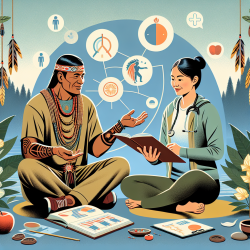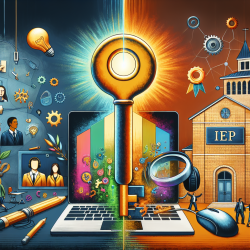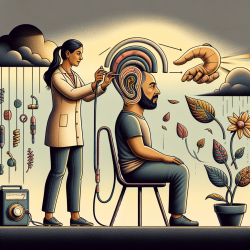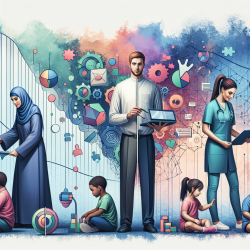Introduction to Socio-Cultural Integration
In the field of speech-language pathology, understanding the diverse needs of children from various cultural backgrounds is crucial for effective therapy. The research article "Socio-cultural integration and holistic health among Indigenous young adults" offers valuable insights into how socio-cultural factors influence wellbeing. This blog post aims to guide practitioners in enhancing their skills by implementing the findings of this research, ultimately fostering better outcomes for children.
Key Findings from the Research
The study conducted by Walls et al. (2022) highlights the importance of socio-cultural integration in promoting holistic health among Indigenous young adults. The research identifies three distinct profiles of socio-cultural integration: low, moderate, and high. It was found that individuals with higher levels of socio-cultural integration reported better self-rated physical, mental, and spiritual health.
Socio-cultural integration encompasses several dimensions, including:
- Cultural Identity: A strong sense of belonging to one's cultural group.
- Social Support: Both giving and receiving emotional and instrumental support.
- Connectedness: Feeling connected to family, community, and nature.
Implications for Practitioners
For practitioners working with children, particularly those from Indigenous or diverse cultural backgrounds, integrating these socio-cultural dimensions into therapy can enhance outcomes. Here are some practical steps:
- Emphasize Cultural Identity: Encourage children to explore and express their cultural identities. This can be achieved through storytelling, cultural activities, and connecting with community members.
- Foster Social Support Networks: Facilitate environments where children can both receive and provide support. Group activities and peer mentoring can be effective strategies.
- Promote Connectedness: Incorporate activities that connect children with nature and their communities. Outdoor learning and community service projects can strengthen these ties.
Encouraging Further Research
While the study provides significant insights, it also opens avenues for further research. Practitioners are encouraged to explore how these socio-cultural integration factors can be tailored to different cultural contexts. Additionally, investigating the long-term impacts of socio-cultural integration on children's development can provide deeper understanding and inform practice.
Conclusion
Integrating socio-cultural factors into therapy not only aligns with Indigenous conceptions of wellbeing but also enhances the effectiveness of interventions across diverse cultural settings. By focusing on cultural identity, social support, and connectedness, practitioners can create more inclusive and supportive environments for children, leading to improved holistic health outcomes.
To read the original research paper, please follow this link: Socio-cultural integration and holistic health among Indigenous young adults.










